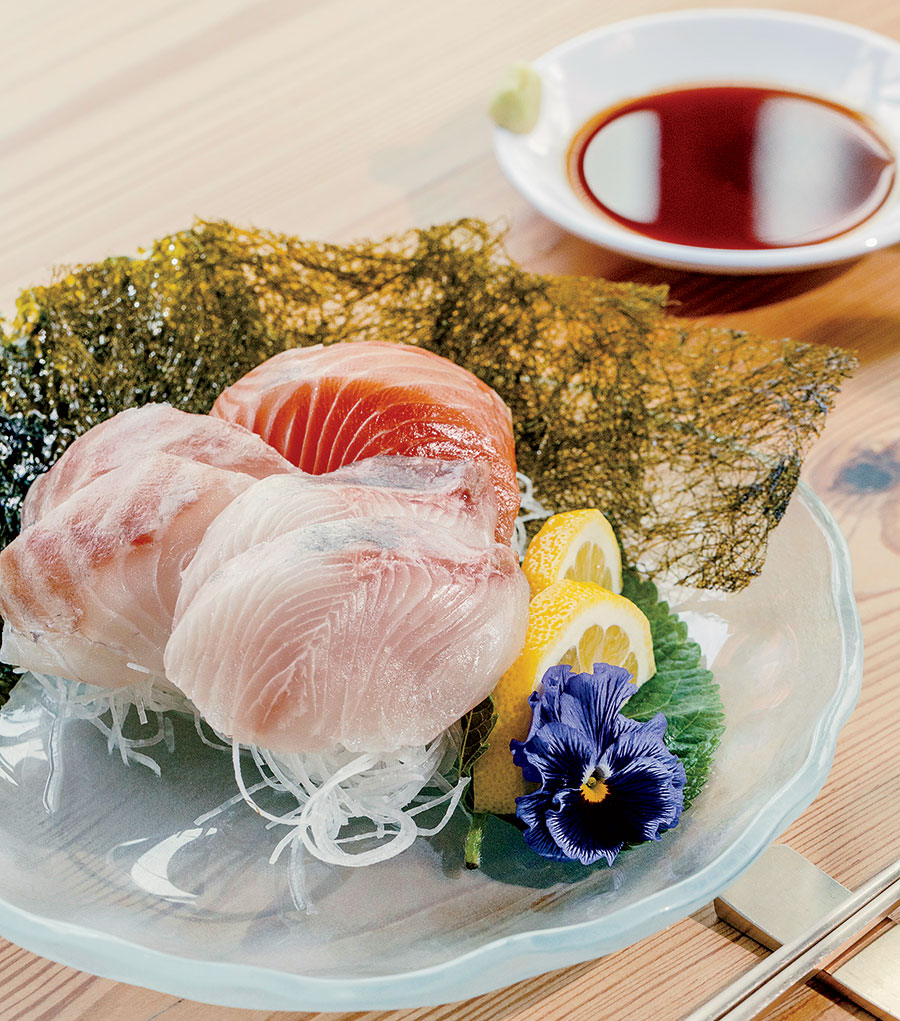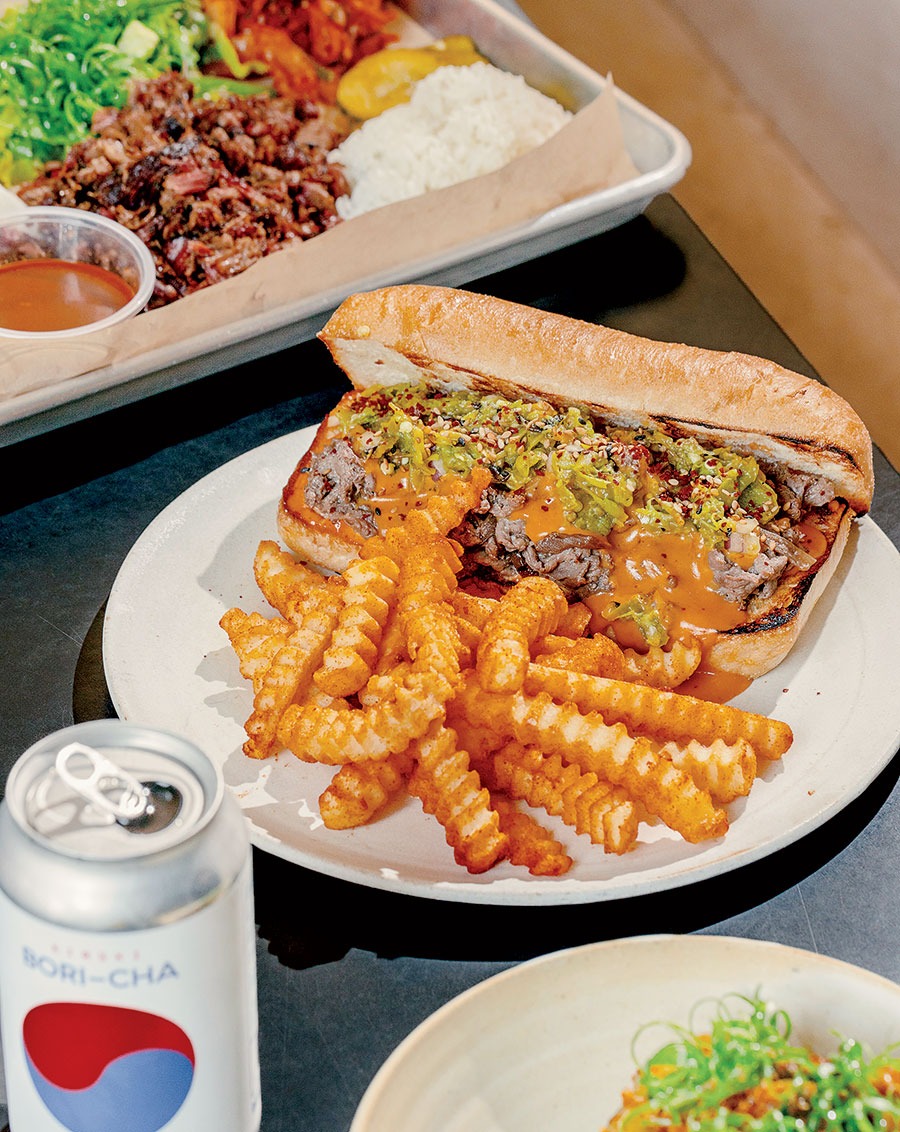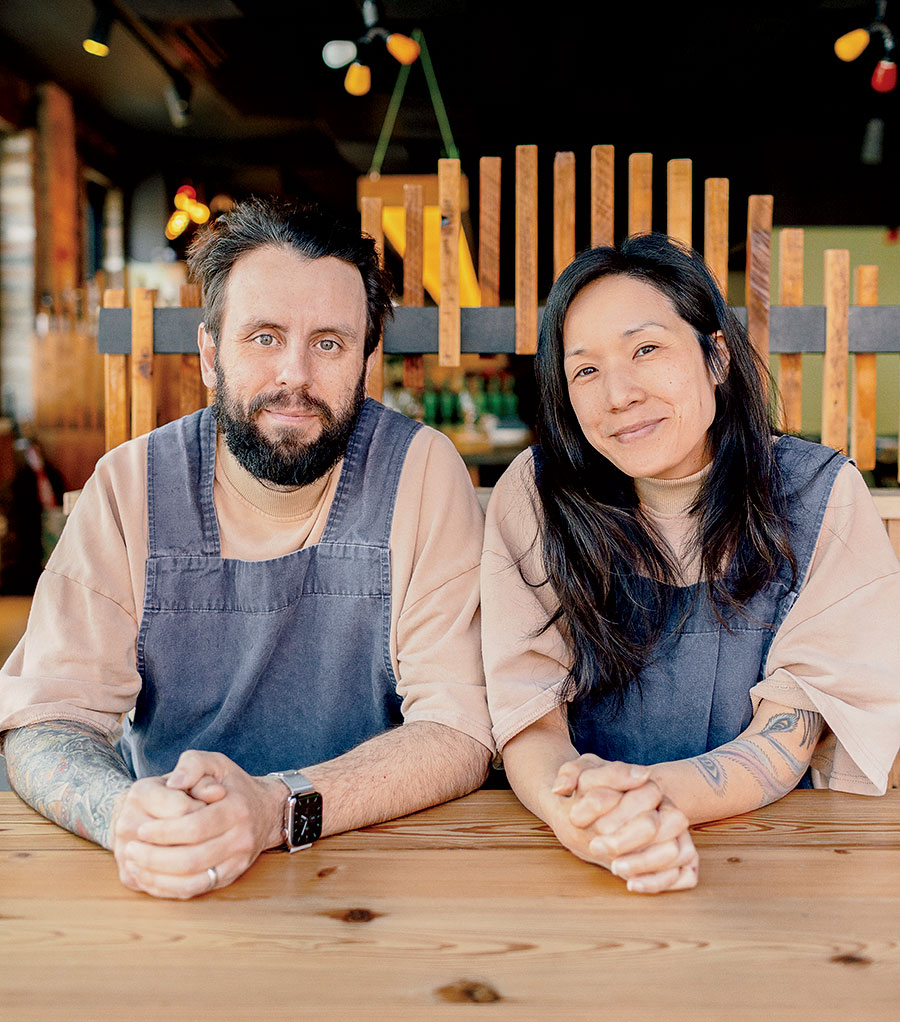When Parachute reopened in May 2022 after closing for the pandemic, diners were in for a surprise: The hugely popular baked potato bing bread was off the menu. Not only did its labor-intensiveness make it too pricey to produce, but it “just didn’t fit with the menu anymore,” says chef Johnny Clark. Instead, diners found fare that chef Beverly Kim says “leans more into the heart of Korean food.”
Since opening the acclaimed Avondale restaurant (3500 N. Elston Ave.) in 2014, the two had been serving a menu that Kim has called “a hybrid,” melding Korean cuisine with global ingredients like ras el hanout or nuoc cham. Leading up to their pandemic closure, they had started to explore a more classic Korean menu. Upon reopening, they decided to go all in. The change allowed them to stretch their creativity, and their customers were ready for it, too. Because diners have become more familiar with Korean food in the past decade, Kim says, she and Clark can now serve less expected dishes. In addition, high-quality Korean products like cold-pressed sesame oil, doenjang (soybean paste), and umami-forward soy sauce are now available here. “Before, we had to use commodity products, which did not let you taste the true essence of Korea,” Clark says.

Now Clark and Kim are able to make authentic traditional dishes, some of which Kim grew up eating. One example on the menu: hwe (raw fish), which arrives with three types from Japan. To eat, you wrap the fish in seaweed, then dip it in tangy strawberry chojang or five-year-aged Korean soy. Also on the menu: yuk hwe, partially frozen strips of beef tartare with sesame and preserved shallots, as well as pajeon, a squid and shrimp pancake with five kinds of onions. Parachute’s beverage menu now leans into sool, the umbrella term for Korean alcoholic beverages, with offerings like soju and makgeolli. Clark says: “When you taste these beverages with the dishes that have doenjang and gochujang, you’re tasting the earth of Korea.”
Farther south, in Bridgeport, Kimski (960 W. 31st St.), another critical darling, has also started leaning into its heritage. Since reopening it in April after a five-month break, chef Won Kim has evolved the Korean-Polish mash-up menu he’d been serving since 2016 to focus on dishes that play off Korean classics.

“I thought it would be good to start making food that I want to make instead of working so hard to stick to the theme,” he says. “I grew up eating Korean food with a snackier approach, and I’m combining that with my love of casual American food.” That means items like his own take on hwe: a bagel-inspired rice bowl with house-cured salmon, smoked trout roe, local Tilly Bagel everything spice, dill, and dollops of soy cream. Then there’s the cheesy beef sandwich, a flavor bomb with bulgogi, housemade Cheez Whiz, onions, and charred shishitos. Says Kim: “It’s sloppy and fun, but the flavors are there.”



